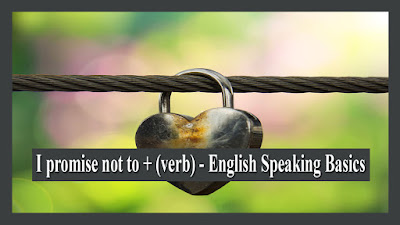I'm looking forward to - English Speaking Basics
When telling someone you are looking forward to you, you are saying that you are waiting or hoping for something, especially with pleasure.
 |
| I'm looking forward to - English Speaking Basics |
Here are some examples:
"I'm looking forward to meeting you."
"I'm looking forward to talking with you."
"I'm looking forward to going on vacation."
"I'm looking forward to spending time with my family."
"I'm looking forward to learning the English language."
"I am looking forward to visiting another country."
"I am looking forward to having a family."
"I am looking forward to graduating from college."
"I am looking forward to watching the baseball game."
"I am looking forward to running in a race."
Learning Spoken English Whatsapp Groups Link In 2021
English Literature WhatsApp groups
Spoken English WhatsApp Group Links 2021
Join English Practice WhatsApp Group Links

 K.S.Chowdary
K.S.Chowdary



















%20-%20English%20Speaking%20Basics.jpg)
%20-%20English%20Speaking%20Basics%20-%20Part%20III.jpg)

